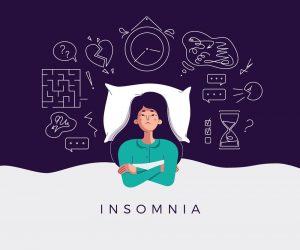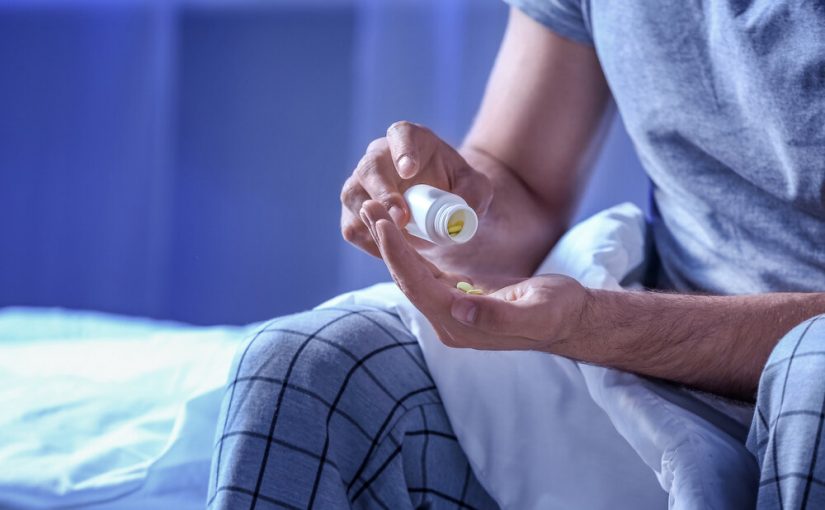Seroquel for sleep: Does it work?
Many doctors are reluctant to recommend conventional sleeping pills due to worries that they can cause addiction and tolerance. To aid patients in falling asleep, general practitioners frequently prescribe other types of medications that have sedative side effects. These medications are utilized “off label,” meaning they aren’t approved to treat specific ailments but are nevertheless capable of doing so. One such off-label medication used to treat insomnia is Seroquel (Quetiapine).
Seroquel: Antipsychotic drug
- Seroquel: Antipsychotic drug
- Quetiapine as a primary insomnia treatment:
- Seroquel dosage for Sleep:
- Dangers of Seroquel for sleep:
- Medications on prescription:
- Seroquel or Sleeping tablets?
- Seroquel for sleep in Elderly:
- Do the data support the use of Seroquel as a sleep aid?
- Sleeping pills supplements:
- Trazodone and Seroquel together for sleep:
- Doxepin vs Seroquel for sleep:
- Possible abuse of Seroquel:
- Is Seroquel addictive for sleep?
- FAQ:
- How much Seroquel for sleep?
- Is Seroquel used for sleep?
- How long does it take for Seroquel to put you to sleep?
- What can replace Seroquel for sleep?
- When to take Seroquel for sleep?
- How does Seroquel work for sleep?
- What does Seroquel do to a normal person?
- What time should I take Seroquel at night?
- How Long Does It Take Seroquel To Work For Sleep?
- Why does Seroquel cause weight gain?
The following conditions are approved for Seroquel use in the UK:
Schizophrenia, in addition to the main medicine used to treat major depression, treatment of mania in bipolar disorder, treatment of depression in bipolar disorder, and prevention of mania and depression in bipolar disorder. Quetiapine is frequently offered for sale in the USA under the trade name Seroquel.
Quetiapine as a primary insomnia treatment:

Seroquel is being used in low doses to treat sleep disturbances despite the fact that there isn’t enough data to support its claim that it can aid with sleep improvement. For instance, the number of quetiapine prescriptions written in Canada for sleep disorders increased by 300% between 2005 and 2012.
Quetiapine was also the fourth most frequently prescribed medication for insomnia between 1999 and 2010, according to data from a comprehensive US survey (11 percent). The medication was not a licensed alternative to treating insomnia in either of these nations.
Seroquel dosage for Sleep:
By easing anxiety and depressive symptoms, for example, quetiapine can help with sleep-related disorders. Since the drug is intended to treat symptoms that, in and of themselves, impact sleep, it is challenging to assess its effectiveness as a sleep aid.
We can examine studies with healthy volunteers who don’t exhibit any symptoms of psychiatric disorder to determine whether the medication has a direct impact on sleep. These investigations enable a precise evaluation of the medication’s impact on sleep.
However, there isn’t much research that has examined quetiapine’s impact on sleep in people who weren’t simultaneously dealing with a psychiatric condition. In one trial, 14 healthy males received placebo or quetiapine in doses of 25 mg and 100 mg for three nights in a row. Objective and subjective ratings of sleep, including: improved statistically significantly with both doses of Seroquel seen.
Despite these advantageous outcomes, it was shown that the 100 mg dose reduced the quantity of REM sleep, a stage of sleep critical to our mental wellness.
Two patients who were on quetiapine developed orthostatic hypotension, which is a dip in blood pressure when a person stands up from sitting, and the 100mg dose also increased the frequency of periodic leg movements.
25 participants in a study of those with primary insomnia were given either a placebo or 25mg of quetiapine. No appreciable changes were observed in the length of sleep, speed of sleep onset, daytime alertness, or sleep quality.
A more recent study that used traffic sounds to keep patients awake duplicated sleeplessness. When compared to a placebo, they discovered that 50mg of quetiapine lengthened total sleep time and continuous sleep. Nevertheless, there was evidence of hangover symptoms the next day, with quetiapine producing daytime tiredness and attention problems.
The Starting dose of Seroquel for sleep is 12.5mg. Hence, a dosage of 50 mg and 100mg was found to be more effective for the sleep disorder. The maximum dosage of Seroquel for sleep remains to be 800mg.
Dangers of Seroquel for sleep:
There are several negative effects of Seroquel, many of which have the potential to interfere with your ability to sleep. It is far from ideal for a medication that is supposed to promote sleep!
The following side effects, which happen in at least one in ten persons using quetiapine and may interfere with your sleep, include:
Dizziness, exhaustion, and shortness of breath as well as headaches, fever, a dry mouth, an increase in weight and appetite, a fast or irregular heartbeat, indigestion, constipation, gastrointestinal trouble, vomiting, or swollen arms or legs, disturbances of sleep, irritability, and suicidal thoughts.
Less frequent adverse effects can include the following illnesses, which can be fatal:
- White blood cell disorder is also known as neutropenia.
- Neuroleptic malignant syndrome (NMS): a rare medication reaction
For those who have dementia, Seroquel also has significant hazards, including accelerated cognitive deterioration and death.
Medications on prescription:

You may find it simpler to get to sleep and stay asleep if you use prescription sleeping pills. Benzodiazepines and medications like antidepressants that have sedative effects are available on prescription.
Examples of sleep aids available only on prescription include:
- Ramelteon
- Doxepin
- Zolpidem
- Triazolam
- Zaleplon
Since several of these medicines have the potential for habit formation, prolonged usage is not advised. Additionally, drowsiness during the daytime is one of the negative effects of prescribed sleeping drugs. It’s crucial to go over the advantages and disadvantages of using prescription sleeping pills with your doctor.
Seroquel or Sleeping tablets?
The fear that they are addictive is one of the most frequently expressed objections to taking conventional sleeping pills to treat insomnia. For this reason, doctors prefer to recommend alternatives that are not linked to addiction.
But numerous studies have demonstrated quetiapine’s potential for abuse. This raises severe concerns about whether it can serve as a substitute for either benzodiazepines or so-called “Z” medicines.
Seroquel for sleep in Elderly:

Insomnia is fairly common among older persons. Antipsychotics are strongly discouraged by official recommendations when treating primary insomnia in older persons since drugs like Seroquel are known to enhance the risk for fainting, heart attack, stroke, and cognitive dysfunction.
Prescription sleep medications safe for older adults include:
- Doxepin (Silenor)
- Tasmeltion (Hetiloz)
- Ramelteon (Rozerem)
Do the data support the use of Seroquel as a sleep aid?
While there is some evidence that Quetiapine(Seroquel) can enhance sleep in healthy people, patients with insomnia only see slight enhancements in their sleep.
There is minimal evidence to support the prescription of quetiapine for insomnia given the ambiguous findings reported in the few trials mentioned above. According to studies, quetiapine shouldn’t be used as a sleep aid in most cases.
The findings are supported by a review of quetiapine for treating insomnia, which found little evidence that any benefits outweigh the potential dangers.
Even people who require care for a disorder for which quetiapine is licensed, such as schizophrenia, can experience this. There is a general agreement across research that quetiapine shouldn’t be used as a sleep aid.
Therefore, it’s puzzling how a medication that isn’t really known for treating insomnia can be so routinely given. It’s also linked to a wide variety of negative effects, including the possibility of addiction, and abuse.
Sleeping pills supplements:
Melatonin:
Melatonin is a well-liked supplement since it is one of the most significant hormones directly connected to the control and promotion of sleep. Once it gets dark outside, the pineal gland automatically releases more of it.
The study includes a literature review from 2013. According to a reliable source, consuming melatonin before bed can treat primary insomnia. Consult a physician to determine your personal dosage needs.
Root of Valerian:
The sedative effects of valerian, which was once thought of as a hypnotic, are frequently discussed. A 2020 review found that its effects on molecules involved in relaxing have undergone extensive research.
These chemicals, which all aid in encouraging sleep, include GABA, serotonin, and adenosine. Coffee’s active components are known to inhibit adenosine receptors, increasing wakefulness. By turning on these receptors, Valerian acts in the opposite way.
Sleep Hygiene:
Regular evening and overnight routines are crucial to the overall quality of your sleep. Sleep hygiene is the term for your bedtime routine.
Among the best sleep hygiene measures are:
Ensuring that your bedroom is cool, quiet, and dark refraining from eating at least three hours before bedtime avoiding naps that last longer than 30 minutes during the day attempting to go to bed and wake up at the same times each day avoiding light from cell phones, televisions, and other sources before bed.
Be sure to talk with your doctor or pharmacist before taking a supplement. While supplements may carry a lower risk of serious side effects, they can interfere with other medications you may be taking.
Trazodone and Seroquel together for sleep:
Although it is a rare adverse effect, taking trazodone with Seroquel can increase the risk of a significant and perhaps fatal abnormal heart rhythm.
If you have congenital long QT syndrome, other cardiac conditions, conduction anomalies, or electrolyte imbalances, you can be more vulnerable (for example, magnesium or potassium loss due to severe or prolonged diarrhea or vomiting). If you have any questions or concerns, consult your doctor.
Despite the risks, your doctor has decided that this is the best course of therapy for you, has taken the necessary measures, and is closely watching you for any potential side effects.
If you have abrupt dizziness, light-headedness, fainting, shortness of breath, or heart palpitations while taking these medications, whether they are taken together or separately, you should seek emergency medical help.
Informing your doctor about all additional prescriptions you take, including vitamins and herbal remedies, is very vital. Without first consulting, your doctor never stops taking any drugs.
Doxepin vs Seroquel for sleep:
Although it is a rare adverse effect, using Seroquel and Doxepin together can increase the risk of an abnormal heart rhythm that could be dangerous and even fatal.
Possible abuse of Seroquel:

The use of quetiapine to enhance or mitigate the negative effects of drugs like marijuana, cocaine, and heroin is known as “Seroquelling.”
Seroquel alone does not cause the euphoria or other enjoyable effects commonly associated with drugs of abuse. Although the exact mechanism for the drug’s rewarding effects is yet unknown, its potential for abuse may stem from its capacity to temper the overstimulation brought on by other addictive substances.
Is Seroquel addictive for sleep?
There is proof that Seroquel addiction exists. Patients should exercise caution due to side effects of Seroquel for sleep such as morning hangover symptoms and midday lethargy. Drugs like Seroquel can only cover up sleep issues; they cannot solve them.
Bottom Line:
Generally speaking, under careful supervision, quetiapine may aid in the treatment of insomnia in individuals who also have associated schizophrenia or mood disorders. According to some evidence, quetiapine may also be used to treat PTSD-related sleeplessness and nightmares. When faced with tough choices regarding the care of patients who are extremely upset, doctors need alternatives to seroquel for sleep.
The evidence is not strong enough to justify using quetiapine widely to treat insomnia in the general patient population. Several groups have advised against taking quetiapine off-label for sleep, including the American Diabetes Association, American Psychiatric Association, American Association of Clinical Endocrinologists, North American Association for the Study of Obesity, and the American Geriatric Society.
Seroquel should be tried before other FDA-approved sleep aids. Additionally, there are non-pharmacological methods like meditation, cognitive behavioral therapy for insomnia, and good sleep habits. To learn more about the kinds of therapies that could be best for you, speak with a healthcare expert.
FAQ:
How much Seroquel for sleep?
Depending on the purpose, the dose might range from 25 mg to 800 mg per day. It is typically low-dose quetiapine, between 25 mg and 100 mg administered before bedtime that is used to treat insomnia. It is advised to take quetiapine close to sleep since it swiftly induces sedation after use.
Is Seroquel used for sleep?
Quetiapine (Seroquel), a second-generation antipsychotic, is being used off-label to treat insomnia in the general population, potentially to avoid mainstream drugs that are known to have addictive properties and negative side effects.
How long does it take for Seroquel to put you to sleep?
The usual dose takes around 30 to 40 minutes. It also depends on the dosage you take (12.5 mg to 800mg).
What can replace Seroquel for sleep?
Few of the medications like Trazodone, and Doxepin. However, gastrointestinal adverse effects were reported in trazodone and doxepin-treated patients than in quetiapine-treated patients. Other treatments include therapies and natural remedies.
When to take Seroquel for sleep?
It is typically low-dose Seroquel, between 25 mg and 100 mg administered before bedtime that is used to treat insomnia. It is advised to take this medication close to sleep since it swiftly induces sedation after use.
How does Seroquel work for sleep?
Seroquel, or quetiapine, exerts its influence on sleep primarily through its sedative properties. As an atypical antipsychotic medication, Seroquel blocks histamine receptors in the brain, particularly H1 receptors, which are involved in promoting wakefulness. By antagonizing these receptors, Seroquel induces a calming effect that can help individuals feel drowsy and facilitate the onset of sleep.
What does Seroquel do to a normal person?
In individuals without psychiatric conditions, Seroquel (quetiapine) can induce significant physiological and cognitive effects primarily due to its action on neurotransmitter receptors in the brain. Its sedative properties, stemming from its antagonism of histamine receptors, can lead to pronounced drowsiness and facilitate sleep onset. However, this sedation may also impair cognitive functions such as memory, concentration, and alertness, potentially impacting daily activities.
What time should I take Seroquel at night?
The timing of Seroquel (quetiapine) at night should be carefully considered based on individual factors and therapeutic goals. Generally, Seroquel is taken in the evening or at bedtime due to its sedative effects, which can help induce sleep. The exact time can vary depending on personal response to the medication and specific instructions from a healthcare provider.
How Long Does It Take Seroquel To Work For Sleep?
The onset of Seroquel (quetiapine) for improving sleep can vary among individuals and depends on several factors. Generally, Seroquel is known for its sedative effects, which typically begin within 1 to 2 hours after taking the medication. This means that it can help induce drowsiness and facilitate sleep onset relatively quickly for many people.
Why does Seroquel cause weight gain?
Seroquel (quetiapine) is associated with weight gain primarily due to its effects on various neurotransmitter systems in the brain and its impact on metabolic processes. One key mechanism is its antagonism of histamine H1 receptors, which can increase appetite and lead to greater food intake.

